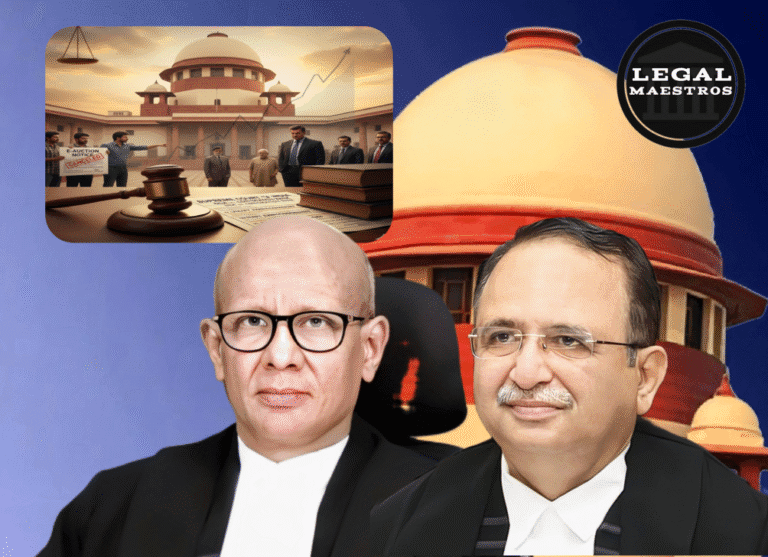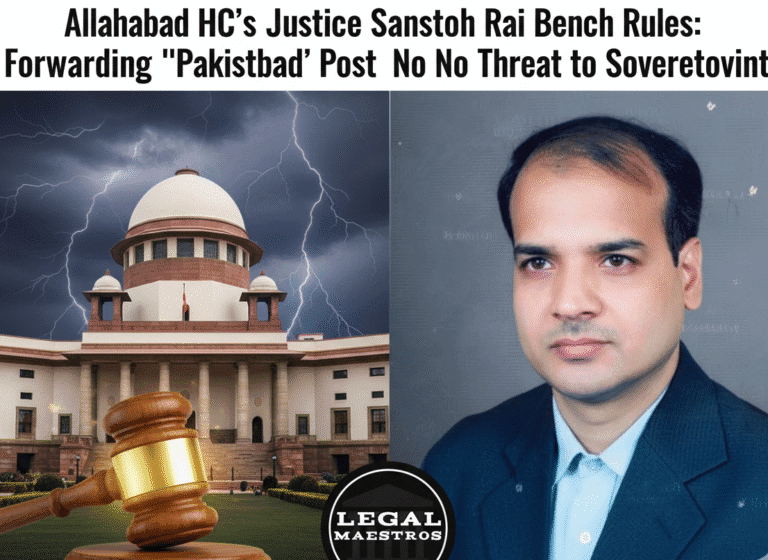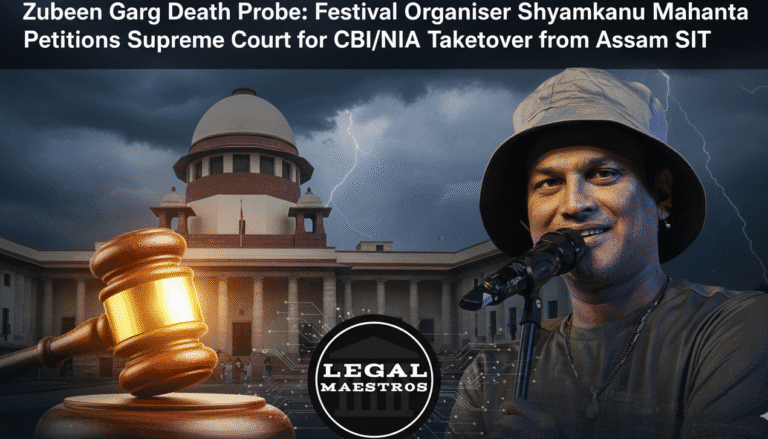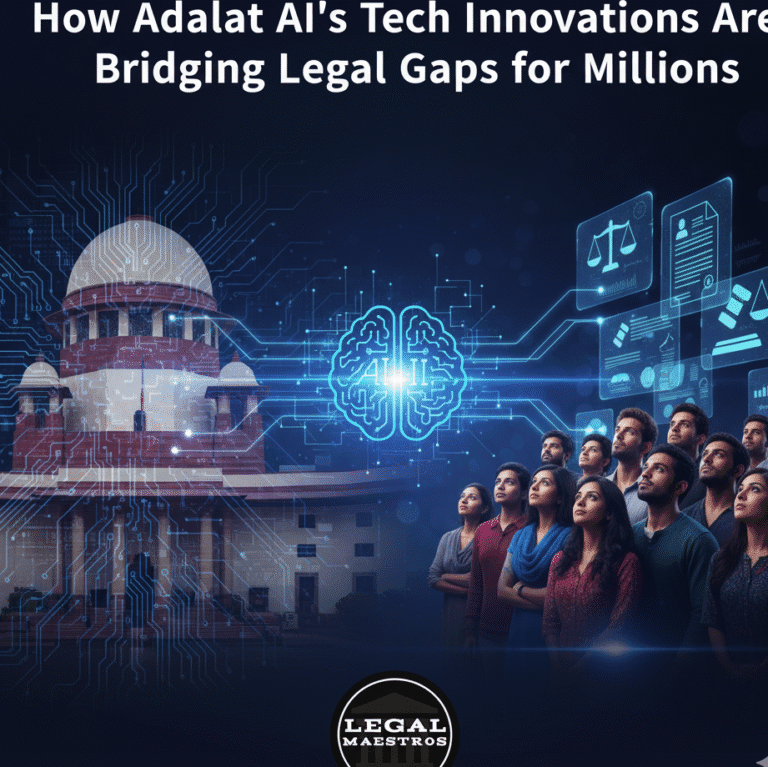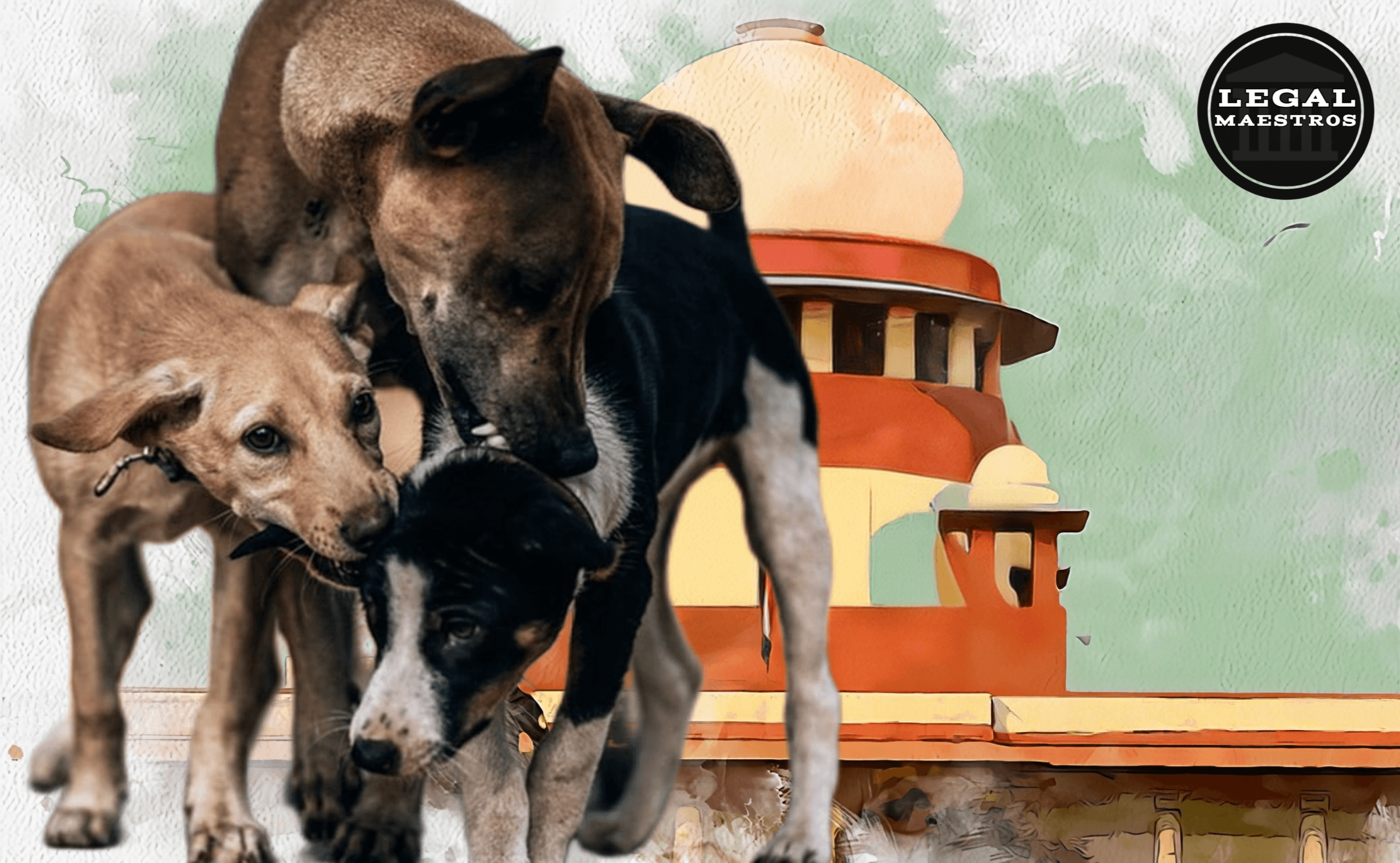
Delhi’s stray dog problem, a long-standing problem straddling the borders of public health, civic responsibility and animal welfare, had finally become serious enough for the Supreme Court to intervene decisively in August this year. It cited the shocking number of dog bites, deaths and recent rabies deaths involving six-year-old children, and, taking suo motu action, changed a problematic civil nuisance into a potential case of constitutional importance. It also admonished those charged with its execution in the capital city to stop with the incrementalism. Justices J B Pardiwala and R Mahadevan imply it is appropriate to take these steps in the capital that may (or may not) lead to securing similar precedent for cities in the rest of the country.
Facts
For any queries or to publish an article or post or advertisement on our platform, do call at +91 6377460764 or email us at contact@legalmaestros.com.
The Supreme Court’s intervention was triggered by mounting evidence of a dire public health emergency. Delhi, home to nearly 1 million stray dogs, recorded over 35,000 animal bite cases in just six months of 2025, while India as a whole continues to account for over a third of Africa–Asia’s annual rabies deaths. Multiple reports detailed not only the scale but the intensity of attacks, with children and elderly citizens disproportionately affected. Despite the Animal Birth Control (ABC) Rules mandating sterilization and return, bitter public outrage over failed implementation, inadequate dog population management, and the steady toll of fatal incidents drove the Court to act, overriding previous administrative and legal inertia.
Issue
Do the ABC Rules and animal welfare regulations currently insist that sterilized dogs will be returned to their sites of capture clash with citizens’ constitutional rights to life, liberty and freedom of movement of citizens, given that many city sidewalks and streets have become venues for uncontrolled canine rampage and schools for diseases? The Court faced whether a reasonable safety perimeter of living free from fear and the expected tranquility of public order can viably supersede the strict adherence to the process of ”capture, sterilize, release.”
For any queries or to publish an article or post or advertisement on our platform, do call at +91 6377460764 or email us at contact@legalmaestros.com.
Judgment
The Supreme Court made a choice for public safety indisputably. It ordered the municipal administration of Delhi, Noida, Gurgaon and the rest of NCR (National Capital Region) to “round up” all stray dogs, relocate them to specialized shelters, and permanently discharge and prohibit the dogs from returning to the streets, even sterilized. It laid upon the civic bodies the following responsibilities: shelters for a minimum of 5,000 dogs within the first eight weeks – with triggers for expanding if local population exceeds shelter capacity; CCTV monitoring; emergency helplines, daily logs for all collected dogs; access to bite complaints with provisions for prompt intervention; strict follow-up actions (which may include contempt proceedings) for people/organizations who obstruct the drives. The Bench had made a ruling in the outcome flexible of the ABC Rules for Delhi NCR and called for a live response to the imperative of civic health and safety, not a formal acknowledgment of a articulated script.
Reason
For any queries or to publish an article or post or advertisement on our platform, do call at +91 6377460764 or email us at contact@legalmaestros.com.
The Court’s reasoning is firmly rooted in cause and effect prioritizing constitutional and human rights. Based on article 21, it restated every citizen’s right, particularly children, to freedom of movement without the constant threat of being attacked or contracting rabies. It stated the ABC Rules have not only failed to protect citizens but have contributed to the suffering of the very dogs the intended change was meant to protect(play), by creating uncontrolled dog populations being exposed to the dangers of accidents, abuse, and starvation/famine. The Justices wanted to have a framework of no “sentimentality”, because misplaced compassion cannot simply be at the expense of human rights and dignity. By requiring removal and centralized sheltering, the ruling did not attempt cruelty, but a higher level of responsibility – ‘compassion with accountability’. Shelter-based management can provide both purposes to ensure the safety of people, and provide for dogs away from dangerous streets successfully if properly funded closely overseen/agreed transparency.
The Bench rightly identified a constitutional and civic duty to restore and protect public confidence: “the actions taken by the pavement dogs should provide confidence that people could move freely without fear of being bitten by a stray dog” No sentiments should be involved.” In their view, the inaction and unaccountable enforcement of previous policies abrogated the state’s duty to protect its people, compelling judicial intervention as a last resort.
Significance
For any queries or to publish an article or post or advertisement on our platform, do call at +91 6377460764 or email us at contact@legalmaestros.com.
The order is a watershed moment, resetting a failed balance between animal rights activism and civic safety. It does not deny compassion—indeed, permanent sheltering, vaccination, and monitoring can raise the welfare standard for community dogs. But the ruling decisively affirms that the right to life and bodily integrity for Delhi’s nearly 33 million citizens is paramount. It has, on balance, ended decades of official inaction that has resulted in a lot of suffering—both human and canine—as failed sterilization programs, limited shelter space and lack of monitoring created a cycle of destruction.
The meaning of the judgement will come down to:
- The Court’s order was a humane intervention after many years of failed implementation that simply would not allow dogs to die unnecessarily or humans to become injured, particularly vulnerable groups.
- Humans have a right to life, physical security, and an environment that allows them a sense of safety to live their lives. This cannot be ignored simply out of emotion or inaction of an administrator.
- For the first time, administrative officials, local governments, and advocates must consider the legal consequences of their inaction or obstruction for genuine compliance.
- The ruling may serve as a model for other cities, finally reconciling empathy for animals with the obligation to maintain safe, well-managed urban environments.
- Mandates such as CCTVs in shelters, bite helplines, and daily records represent a leap toward transparent, accountable, and responsive civic institutions.
There will be many implementation challenges – large shelter needs, limited resources, and possibility of “vacuum effects” – but the decision charted a strong, aspirational course towards effective governance (rather than prolonged crisis). It is rooted not in populist clangor, but in constitutional principle and a duty to protect the most vulnerable from predictable harm. Ultimately, it offers Delhi a chance to lead India in crafting compassionate, pragmatic urban solutions in the 21st century.
For any queries or to publish an article or post or advertisement on our platform, do call at +91 6377460764 or email us at contact@legalmaestros.com.

